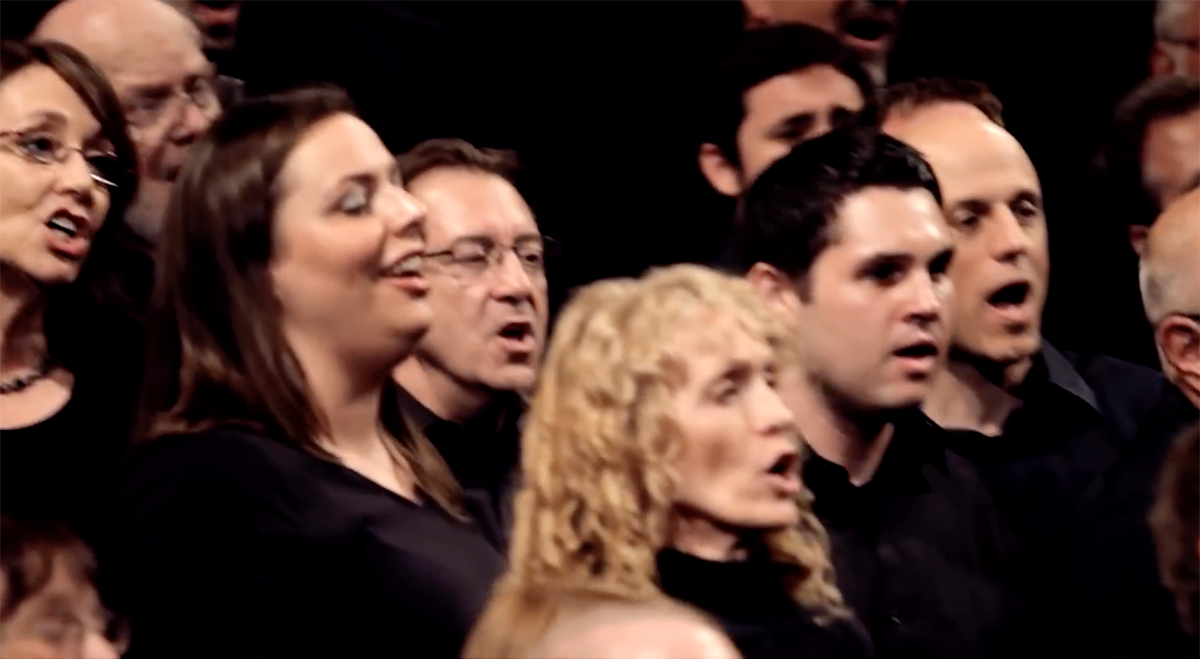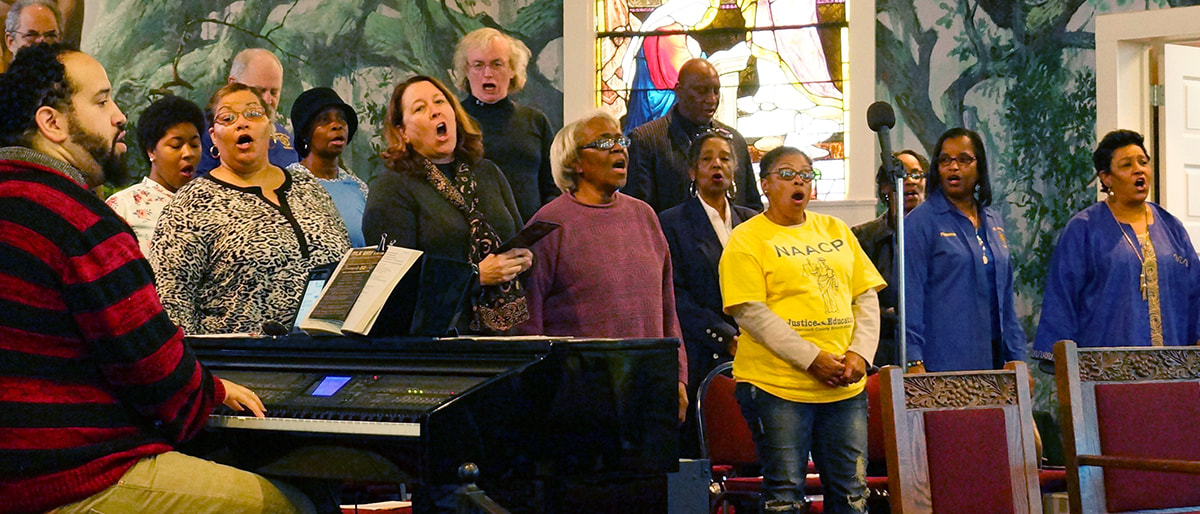Singing with others is satisfying on many levels; and now, several studies show that choral singing offers noteworthy mental and physical health benefits.
- story by Denise Jacobs
There is something about working together in song that lifts our spirits. In fact, there are many factors.
Studies show that singing with other people fosters connections with each other as well as with the environment. Research indicates that singing has key physical benefits. It exercises major muscle groups in the upper body. It’s an aerobic activity that improves the efficiency of our cardiovascular systems and encourages the movement of oxygen into our bodies, leading to increased alertness. Singing also aids the development of motor control and coordination and even improves neurological functioning. The evidence is so compelling that Daniel Pink has written in When: The Scientific Secrets of Perfect Timing(2018), that “singing in a choir could be the new exercise.”
While I appreciate the research, which helps explain why I feel better at the end of a choir rehearsal than at the beginning, I don’t need science to understand why I sing in the choir.
I sing for the discipline and clarity of focus. For an hour and a half once a week, I don’t think about environmental disasters, politics, my latest project, or my next meal. The music on the page commands my full attention. I concentrate on my voice and the voices around me. Something magical happens in the act of merging our voices into one beautiful sound, a sound uninfluenced by political persuasion, ethnicity, or gender. In the music, we are one. I sing for the intimacy that is created within the sacred space of the music we make. I am as closely attuned to the inhalation of those on my right and my left as I might be a lover. I memorize the strengths of the alto section. Some of us are great sight readers. Some learn by ear. Some can always be trusted for the right note; others are less trustworthy in this regard. Some of us have a concrete, dependable sense of rhythm. Others, not so much. The attunement to others that is experienced in choir is akin to what Daniel Pink describes as the profound experience of “synchronizing in time with others.” Singing together in the context of choir creates such a sense of belonging that, over time, we let our collective guard down. One turns a hymn into boogie-woogie. Two others improvise chorus line choreography. A few can’t resist a hearty extended “Ah-men,” a telling throwback to an earlier religious experience. When my sister died in 2012, my tears didn’t fully flow until a Wednesday night a few weeks later, when, surrounded by the music of my choir peeps, I found myself weeping uncontrollably, safely, securely enveloped in the sanctuary of communal song.
We come to choir on Wednesday evenings, a sorry bunch of tired individuals with varying degrees of musical ability. Most weeks we stumble in a courageous display of blind faith through a sight-reading exercise that an observer might find pathetic. Yet I am consistently moved by our willingness to take a chance on being wrong.
When we work through a piece of music for the first time, we have, as my long-standing choir director put it, “differing opinions” as to the composer’s intent. Yet, by the time the choir sings before the congregation, not too many weeks later, those differences have been reconciled, and we have come together in agreement, of one accord, with one voice and one song. And it doesn’t get any better than that. One of my friends from choir, a bass I sang with for years, put it best. He said, “My wife won’t let me make love with other women, but I can sing with as many women as I’d like.” Comments are closed.
|
Categories
All
Archives
July 2024
|
Shoofly Magazine Partners
Our Shoofly Partners are local businesses and organizations who share our mission to enrich community life in Bay St. Louis, Waveland, Diamondhead and Pass Christian. These are limited in number to maximize visibility. Email us now to become a Shoofly Partner!































 RSS Feed
RSS Feed























